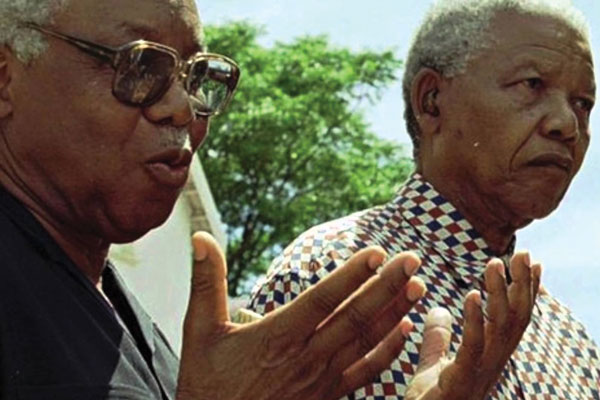
There are indeed many ways of stealing from and wasting an impoverished people’s time. Our politics is a typical example that cluelessness is not really lack of a clue.
Develop me: Tapiwa Gomo

Politicians can feed the mind and buy time to stay in power longer than they should by simply delivering nothing but seasonal events and empty promises.
No one ever guessed in 1980 that President Robert Mugabe would stay in power for this long — up to a stage when almost everything that made this country beautiful and productive has ground to halt.
The former Tanzanian President, the late Mwalimu Julius Nyerere and South Africa’s Nelson Mandela must be turning in their graves seeing what has become of what Nyerere described in 1980 as the “jewel” of the continent which Mugabe was about to inherit.
Sharing stories of how beautiful this country was with our children today, it is not uncommon for them to ask how we got here.
It is not an easy question to answer without a sense of shame. It is embarrassing, because we were cheated and we succumbed to the tactics which have kept the Zanu PF system intact and in power.
We are partly victims of our own naivety arising from the season of the independence euphoria. No one thought things would go wrong. We over trusted our heroes.
- Chamisa under fire over US$120K donation
- Mavhunga puts DeMbare into Chibuku quarterfinals
- Pension funds bet on Cabora Bassa oilfields
- Councils defy govt fire tender directive
Keep Reading
The more and longer we trusted them, the more they solidified their grip on power. They became the leaders, the people and the power.
The formula to staying in power was easy: Claim ownership of the liberation struggle, racially divide the people and promise redistribution of wealth to keep the two races at each other’s throat, while earning relevance to the black majority.
They kept reminding us that they fought for the country, that the white man is the enemy and that they would leave when they conclude the unfinished business of transferring the economy to the people.
In a context where our agro-based economy was indeed in the hands of a few, we believed their rhetoric. But today it is only those who belong to the system ,who continue to stuff national resources into their pockets.
To those whose eyes had started opening up and questioned the government’s performance on pertinent issues and their promises, they too were fed with the rhetoric of democracy.
It is still being preached even to this day. “I will go when the people say it is time to go,” the President has told the nation on numerous occasions. The word “people” used in this context holds no meaning as those people who dared to tell him to go have either been sidelined from his party or reprimanded.
There have been few cases of treason to those who took the “Mugabe must go” agenda to high levels. All this was and is couched under the principles of democracy.
Maybe we over-indulged in the literacy of democracy to the extent that it became a tool of oppression against the people instead of a tool for social change, empowerment and justice for the masses.
Democracy was supposed to promote human rights, peace, and good governance. It was supposed to be the beacon of hope where people can put away guns and other weapons and use their intelligence and reasoning to build a collective, progressive, peaceful and stable Zimbabwe.
In our case democracy nurtured and sustained autocracy. Zimbabwe is one of the few countries in Africa that is yet to miss an election. We hold them regularly and religiously.
Over the past decade-and-a-half elections have become one of the most thriving sectors. There were moments when budgets of civil society organisations fighting against autocracy were the same size of National Budgets for some ministries. Democracy is costly, but it is also too shy and somewhat weak in the face of autocracy.
Democracy protected autocracy and presided over the collapse of our economy. When those of our age look back and take stock, many questions beg for answers. What did we not do to deserve the current state of our country?
If the people went to the polls and voted for change, but the results came out different, what else can the people do? Or if people voted and their results are withheld for a month, is that not a sign that democracy failed our people?
Did the international community, who assume the global policing role, let the people of Zimbabwe down? Would we be in a better space if we had taken matters into our hands?
Were we wrong to take the cautious approach and do things by the book even though those who are in charge of interpreting the book were not on our side?
Whichever way one decides to address these questions, the common feeling among those of our generation is that we were cheated. We lost nearly a decade-and-a-half of our lives fighting and waiting for change.
Patience robbed us of the chance of change things much earlier. Will the 2018 election be different?











